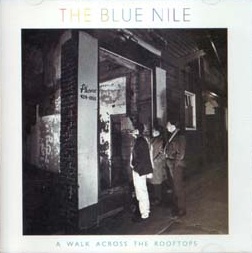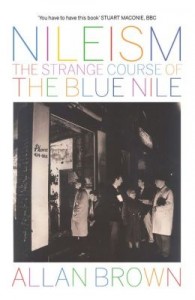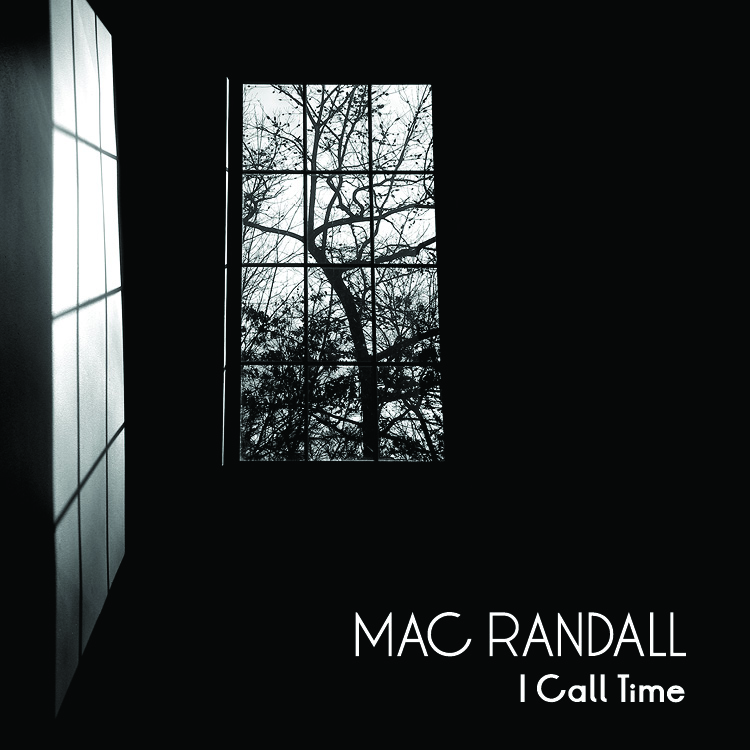No trip down the Blue Nile
I adore music documentaries. As the history of popular music grows ever longer and richer, the films made about it become more intriguing, uncovering obscure subjects and finding universal meaning in them. Searching for Sugar Man, about Sixto Rodriguez, the early-’70s Detroit troubadour who achieved stardom in South Africa without knowing it, is a great example. So are such movies as Sound City (which I’ve written about previously), Big Star: Nothing Can Hurt Me, and 20 Feet from Stardom. In fact, there have been so many great music docs coming out recently that I started thinking I’d like to make one myself. And I knew just what my subject should be: a mysterious band from Glasgow, Scotland, called the Blue Nile.
 The Blue Nile was together for nearly 30 years, forming in 1980 and dissolving for good (or so it seems) around 2008. During that time, they released a grand total of 45 songs, which appeared on four albums and a few stray single sides. They played no more than 50 live shows in their entire career. Their music was both highly emotional and oddly abstract, winning the affection of a small but devoted group of fans who had to develop a talent for waiting long stretches—five years between albums one and two, seven years between albums two and three, eight years between albums three and four. What took them so long? Rumor had it that their neurotic perfectionism stopped just short of total inertia, which seemed as good an explanation as any. They didn’t speak much to the press, and even when they did, little was revealed.
The Blue Nile was together for nearly 30 years, forming in 1980 and dissolving for good (or so it seems) around 2008. During that time, they released a grand total of 45 songs, which appeared on four albums and a few stray single sides. They played no more than 50 live shows in their entire career. Their music was both highly emotional and oddly abstract, winning the affection of a small but devoted group of fans who had to develop a talent for waiting long stretches—five years between albums one and two, seven years between albums two and three, eight years between albums three and four. What took them so long? Rumor had it that their neurotic perfectionism stopped just short of total inertia, which seemed as good an explanation as any. They didn’t speak much to the press, and even when they did, little was revealed.
I first heard the Blue Nile when I was 14. I was riding through Cambridge, Mass., in a van driven by Ben Deily, founding member of the Lemonheads and older brother of one of my best friends. There was a cassette machine in the van, and on this day, curious sounds were emanating from it. Tight, robotic rhythms; skeletal funk guitar; a spare acoustic piano figure that splashed over the chords like teardrops; and an absolutely remarkable male voice that sounded as if it had been worn down by years of bitter living yet continued to yearn for something more. “Stay, and I will understand you,” the voice repeated hopefully, desperately. “Who is this?” I asked. “The Blue Nile,” Ben said.
The album we were listening to was A Walk Across the Rooftops, the band’s seven-song 1984 debut. There are few albums that I have listened to as much in the years since. I regard it without question as one of the finest albums of the ’80s, and it’s a permanent fixture on my all-time Top 10 list. I simply never tire of it. Rooftops is especially well suited to late-night listening on headphones; its disjointed rhythms, eerie synth timbres, and electronic noise bursts merge with singer Paul Buchanan’s passionate delivery of imagistic lyrics to create a whole nocturnal city in sound. The other three Blue Nile albums are good too—in descending order of value, 1989’s Hats, 2004’s High, and 1996’s Peace at Last—but for me Rooftops remains The One.
A great, underrecognized band with a long, hazy history that hardly anyone knows anything about—sure to be the seed of something there, right? That’s when I discovered that a Glasgow-based writer named Allan Brown had actually written a book about the band a couple of years ago titled Nileism: The Strange Course of the Blue Nile. I ordered the book from Barnes & Noble and awaited it eagerly, hoping that I’d find lots of telling details and arresting anecdotes that I could possibly use as foundations for a film.
 Well, I just finished reading the book, and I did learn a few interesting things, but the big conclusion I drew from it was that neither I nor anyone else will be making a documentary about the Blue Nile any time soon. The three members of the band—singer/guitarist Buchanan, bassist Robert Bell, and keyboardist Paul Joseph “PJ” Moore—are all estranged from each other now and seem intensely uncomfortable talking about themselves. True insight into the music they created and the bizarre semi-career they forged along with it is rare in their remarks. Depression, anxiety, and behavioral issues both passive-aggressive and obsessive-compulsive lurk in the background. The overwhelming impression left by the book is of three supremely hesitant artists who have, through a combination of unfortunate external circumstance, personal demons, and professional ineptitude, placed their heads so far up their own backsides that even they don’t know what’s happened to them over the past 30-plus years. Their manager of seven years, Ed Bicknell, sums it up: “They really didn’t know what it meant to be a professional rock group, or whatever you want to call it. They always sort of played at being a band.”
Well, I just finished reading the book, and I did learn a few interesting things, but the big conclusion I drew from it was that neither I nor anyone else will be making a documentary about the Blue Nile any time soon. The three members of the band—singer/guitarist Buchanan, bassist Robert Bell, and keyboardist Paul Joseph “PJ” Moore—are all estranged from each other now and seem intensely uncomfortable talking about themselves. True insight into the music they created and the bizarre semi-career they forged along with it is rare in their remarks. Depression, anxiety, and behavioral issues both passive-aggressive and obsessive-compulsive lurk in the background. The overwhelming impression left by the book is of three supremely hesitant artists who have, through a combination of unfortunate external circumstance, personal demons, and professional ineptitude, placed their heads so far up their own backsides that even they don’t know what’s happened to them over the past 30-plus years. Their manager of seven years, Ed Bicknell, sums it up: “They really didn’t know what it meant to be a professional rock group, or whatever you want to call it. They always sort of played at being a band.”
Of course, this impression may not be completely accurate, and that could have something to do with Brown’s minimal access to the band members. An acquaintance of Buchanan’s, Brown interviewed him a number of times for various newspapers and magazines before writing Nileism. Buchanan (who released an excellent solo album, Mid Air, in 2012) expressed interest in helping out with the book at first, but later changed his mind. Bell and Moore declined to participate several times. In an afterword written for the paperback edition, Brown details a chance meeting with Moore following the book’s original publication. The keyboardist vented his irritation with both author and book, dismissing the latter as “a thinly disguised love letter to Paul Buchanan.”
I find it hard to believe Moore read the whole thing, as there’s one section in particular that casts the singer in a distinctly unfavorable light. When Buchanan moved from Glasgow to Los Angeles in the early ’90s, he did so largely to win the Blue Nile a new recording contract. He succeeded in his goal, inking a deal with Warner Bros., but he was the only band member to actually sign the contract. The result? The “band” officially became one man. “None of the others were in town at the time,” Buchanan says. “…[W]ho did the signing was meaningless to me. The bonds we had were forever, I thought. That’s what young men do; you think you’re blood brothers. And that’s what happens—sometimes you’re the only one left in the fort.” Either he’s being disingenuous or he’s a moron. In any case, statements like these make it a lot easier to understand the reasons for the band’s ultimate dissolution.
Nileism isn’t a great book—its convoluted chronologies and needless repetitions bespeak the need for a real editor—but it’s probably as good a recounting of the Blue Nile’s history as we’re going to get under the circumstances. All things considered, I think I’ll try and find another subject for my first documentary. And if I need a Blue Nile fix, I’ll just put this song on.






